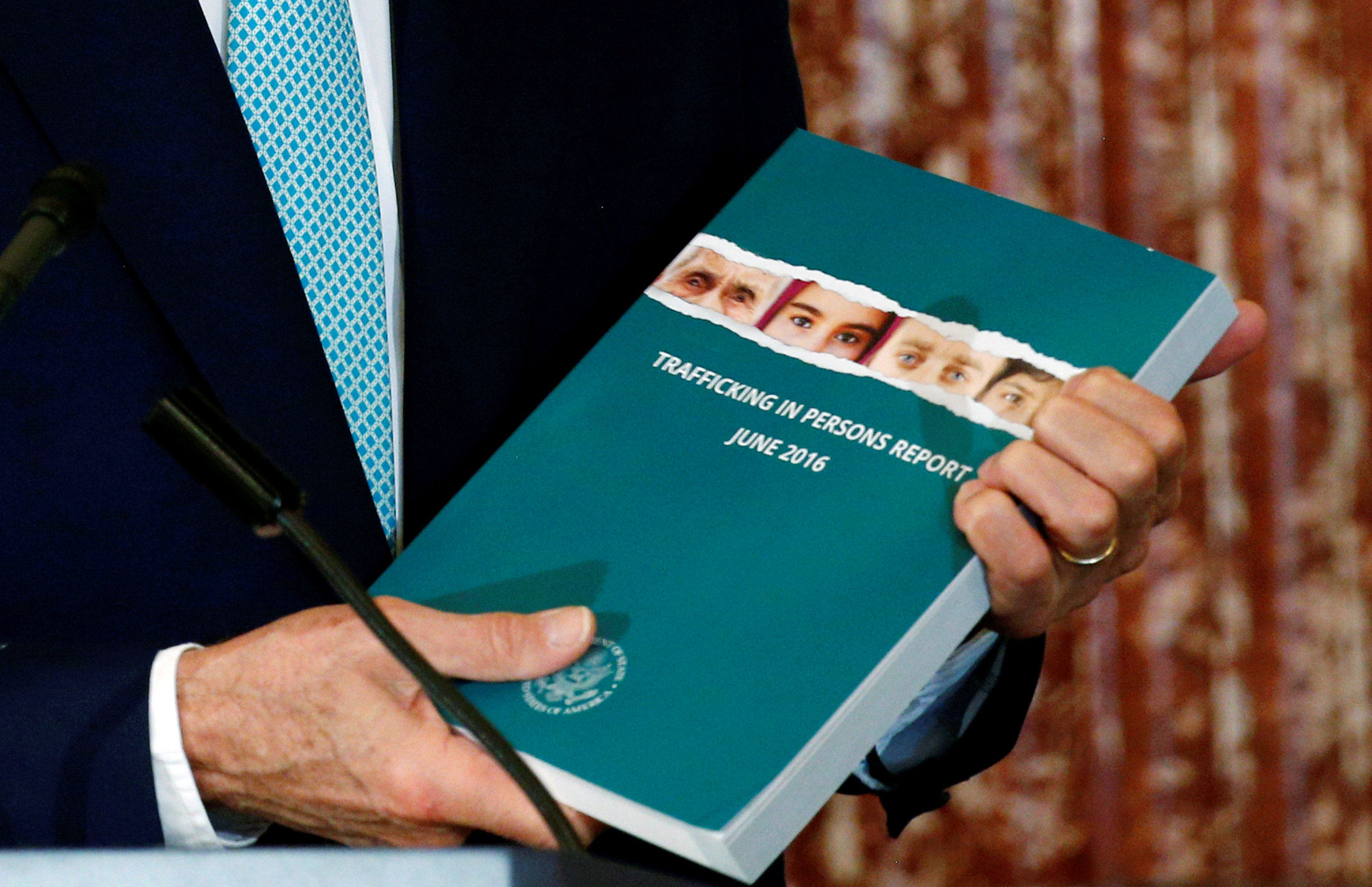When the U.S. government last week raised the Philippines to its highest ranking in a report that assesses how much countries are battling human trafficking, putting it alongside the likes of Britain, Switzerland and Australia, the decision was questioned by aid workers in the Asian nation.
They said they were not convinced it was justified given that the Philippines has a huge sex industry spreading online, and many of the 10 million Filipinos working overseas — often as domestic workers — remain at risk of slavery as they attempt to flee poverty at home.
"In a nutshell, the fight to end human trafficking and modern slavery is far from over," said Maria Cecilia Flores-Oebanda, executive director of the Visayan Forum Foundation, a non-government organization helping victims of human trafficking in the Philippines. "The thing is, when you are hungry or when your child is sick, you tend to make uninformed decisions. This, coupled by a culture of migration, poses risks of exploitation and abuse."



